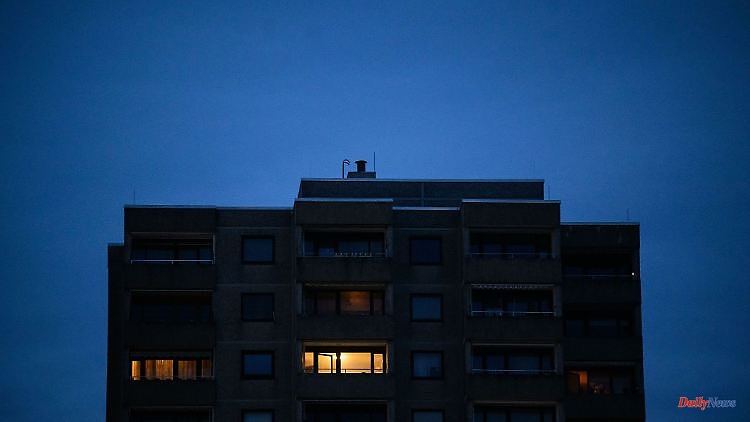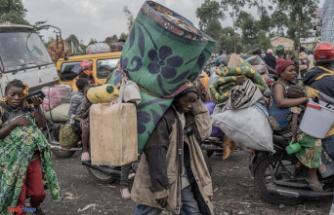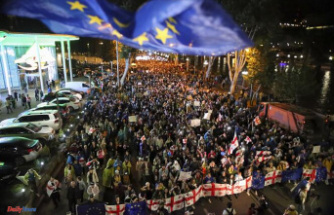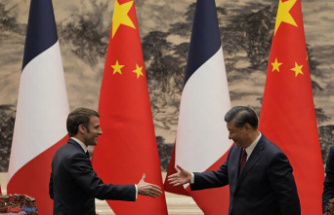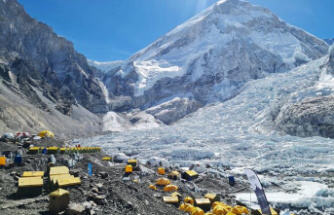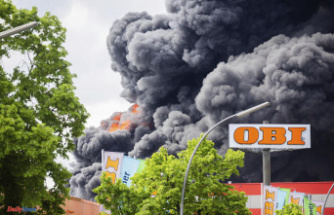From the Munich City Hall to the Marienberg Fortress in Würzburg, countless historical buildings in the Free State remain dark at night. Even in offices, schools and swimming pools, people are feeling that energy has become scarce.
Munich (dpa / lby) - According to their own statements, Bavarian cities follow the Energy Saving Ordinance of the Federal Minister of Economics. In the city offices, but also in schools, swimming pools and gyms, less heating is used, and in some places the street lamps are dimmed. This saves energy and money for the city treasurers.
In Bavaria, since the referendum "Save the Bees" in 2019, it has been forbidden by law to illuminate the facades of public buildings after 11 p.m. Now the municipalities have gone one step further. In Munich, for example, "all the spotlights on churches, historic buildings, bridges, fountains and most of the monuments that are the responsibility of the building department" were switched off from the summer. As the municipal press department further announced, around 6,000 street lights were equipped with LEDs. City offices are heated to a maximum of 19 degrees. Corridors are no longer heated. Clubs shorten the time in the water during swimming courses because the children are too cold.
In Nuremberg, "most public buildings are only heated to 19 degrees, hot water has been turned off across the board and the gyms only have warm showers in exceptional cases". The local authorities check whether the requirements are being met, and according to the consumption measurements "that works quite well," the city said: the savings were between 10 and 30 percent. In order to save more gas, the zoo is now getting a new wood chip system and the crematorium is getting new ovens.
In Würzburg it says: "It is not yet possible to say what energy savings we will record - in addition to the high symbolic value of these actions." Just changing the street lights to LED has reduced electricity consumption from 6.6 to 4.3 million kilowatt hours (kWh) per year.
The Augsburg economics officer Wolfgang Hübschle said that in the past few months Augsburg had saved five percent on lighting and eight percent on heating - also thanks to the initially mild winter.
The Ministry of Robert Habeck (Greens) named the guidelines issued in August "Short-Term Energy Supply Security Measures Ordinance" (EnSikuMaV). According to this, companies should also save energy, limit neon signs and keep shop doors closed. But "there is no legal basis for checking compliance with these measures on site. It is appealed to the responsibility of the respective shopkeeper to save energy in their own economic interest," says the Augsburg economics officer.
Administrative regulations for the interpretation of the regulations do not exist, the factual responsibility for controls is not regulated, it is also said in Regensburg. "All of this makes the implementation of this regulation more difficult." If violations are found, they have no consequences: there are no fines.
In Regensburg, the classrooms in the secondary schools are only heated to 19 degrees, the water temperature in the municipal pools is lowered, and the lighting in multi-storey and underground car parks is halved. In Ingolstadt, street lighting was not reduced - unlike in Munich - but the conversion to dimmable LEDs was increased. Even before the regulation came, 85 percent of all traffic lights were switched off at night. The use of electric radiant heaters in municipal buildings is strictly prohibited in Ingolstadt. And city computers are shut down centrally at the end of the working hours so that they do not remain in standby mode at night.

